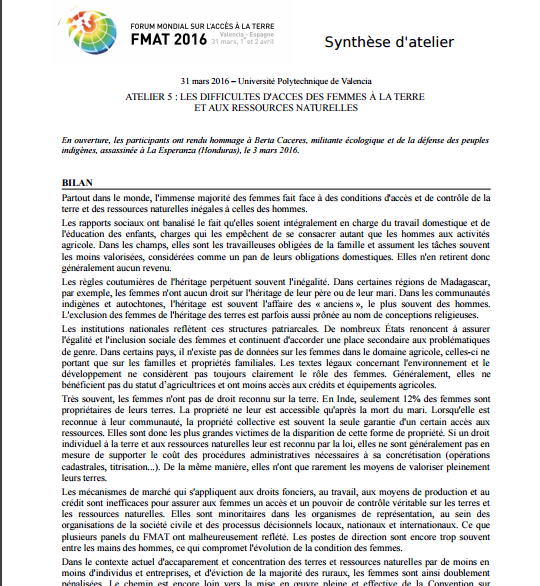WORKSHOP 5: THE DIFFICULTIES OF WOMEN’S ACCESS TO LAND AND NATURAL RESOURCES
Throughout the world, the vast majority of women are faced with conditions of access to land and control of land and natural resources that are unequal to those of men.
Social relations have trivialized the fact that they are entirely in charge of domestic work and the education of children, which prevents them from devoting themselves as much as men to agricultural activities. In the fields, they are the forced laborers of the family and take on the often less valued tasks, considered as part of their domestic obligations. As a result, they generally receive no income.










